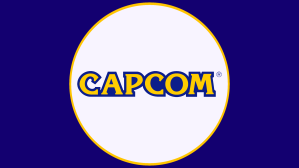Netflix’s psychological thriller Wayward plunges viewers into the sinister world of Tall Pines Academy, a supposedly idyllic institution for troubled adolescents that hides a dark and coercive reality. Helmed by the enigmatic Evelyn Wade (Toni Collette), the academy’s methods are so disturbing and its control over the local community so absolute that the story of Wayward feels unnervingly plausible. The series, created by and starring Mae Martin, builds a sense of constant dread, portraying a systematic breakdown of young people that feels too specific and too chilling to be pure fiction. This haunting realism has led many viewers to ask a critical question: Is the horrifying story of Tall Pines Academy based on a real case?
Videos by ComicBook.com
Warning: Spoilers below for Netflix’s Wayward
While Wayward does not adapt a singular true story or non-fiction book, its horror is rooted in the very real phenomenon of the troubled teen industry. The series is a fictionalized exploration of the dark side of residential treatment programs, a multibillion-dollar network of private facilities that has operated for decades with alarmingly little oversight. Martin has stated the project is deeply personal, inspired by a friend who was sent to one of these institutes as a teenager. Therefore, the show’s power comes from synthesizing the systemic issues and countless survivor horror stories that have defined this controversial industry for years.
What Is the Troubled Teen Industry?

The term “troubled teen industry” refers to a broad and varied network of privately owned, for-profit residential programs. These facilities include therapeutic boarding schools, wilderness therapy programs, residential treatment centers, and boot camps. They market themselves to desperate parents as a last resort for adolescents struggling with behavioral disorders, substance abuse, mental health challenges, or even defiance of family expectations. Unsurprisingly, many of the students in Wayward‘s Tall Pines Academy are not what anyone would classify as “troubled.”
For an often exorbitant price, these programs promise to reform difficult teenagers in a structured environment, far from the negative influences of their daily lives. It is a massive enterprise, with an estimated 120,000 to 200,000 young people residing in such facilities, generating billions of dollars in revenue annually.
The methods employed by these institutions are a core part of their controversy, as many programs utilize tactics designed to break a teen’s will under the guise of therapy. Common practices include the complete severance of outside contact, with communication with family being heavily restricted and monitored. Survivors frequently report the use of “attack therapy,” a confrontational practice where groups are encouraged to verbally humiliate an individual to break down their defenses. Furthermore, Privileges like better food or a phone call home are often tied to a rigid level system, forcing compliance through the denial of basic needs. This methodology is mirrored in Wayward‘s depiction of Tall Pines, where Evelyn’s therapeutic model is a system of psychological torment and control disguised as healing.
The Unregulated Reality of Abuse and Neglect

The most chilling aspect of the troubled teen industry, and the element that gives Wayward its terrifying authenticity, is the well-documented history of abuse and the profound lack of government oversight. For decades, thousands of allegations of abuse, neglect, and even death have been lodged against these programs. Survivor testimonies, amplified by advocacy movements like #BreakingCodeSilence, detail horrific experiences including physical and sexual abuse, starvation, isolation in solitary confinement, and dangerous medical neglect.
This systemic abuse is allowed to thrive in a regulatory vacuum. There is no single federal law that governs the operation of these private programs. As a result, regulation is left to the states, leading to a chaotic patchwork of laws with massive loopholes. For instance, many facilities exploit this by registering as schools or religious academies, exempting them from the stricter licensing requirements of healthcare or childcare facilities. This lack of oversight means staff are often hired without proper qualifications in adolescent psychology or trauma-informed care, and abusive disciplinary measures can continue for years without consequence.
The unchecked power that Evelyn wields over the students of Tall Pines is a direct reflection of the reality that countless young people have faced in an industry that profits from operating in the shadows. So, while the characters and specific events in Wayward are fictional, the show serves as a disturbing allegory. It translates the real-world horrors of the troubled teen industry into a narrative thriller, exposing the dangerous consequences of an unregulated system that preys on vulnerable families.
Wayward is available on Netflix.
Want to stay up to date on the biggest geek entertainment news? Add us as a preferred source in Google – HERE.









